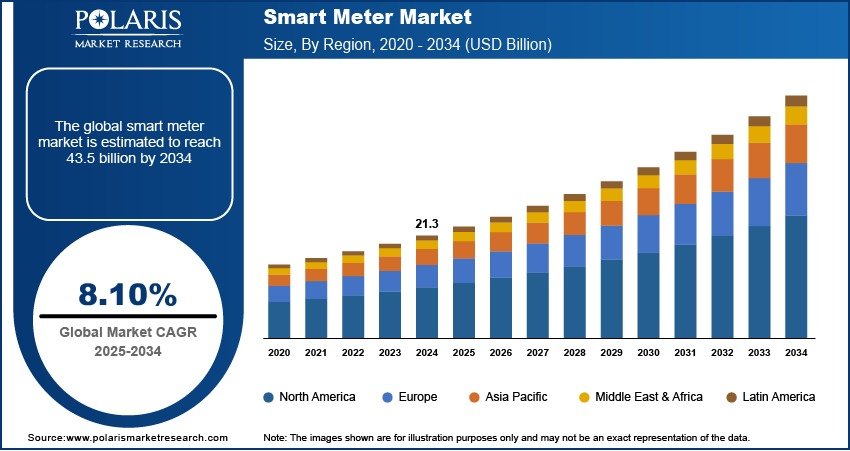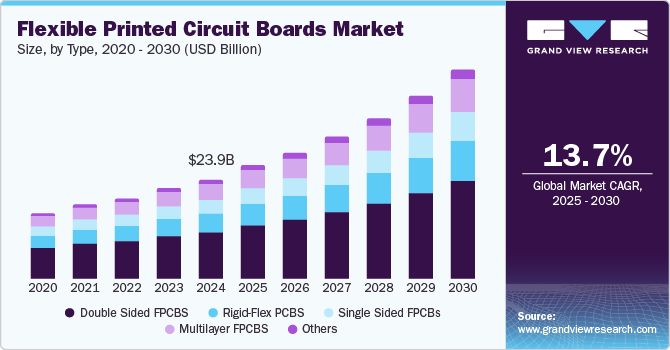Smart Meter Market Size Projected to Reach USD 43.5 Billion by 2034 | CAGR: 8.10%

Key Market Trends:
Integration of smart meters is critical to building smart grid infrastructure, enabling real-time energy monitoring, dynamic pricing, and outage management.
Mandates and policies across countries (e.g., U.S., China, EU, India) are accelerating the adoption of smart electricity, gas, and water meters.
Increasing deployment of AMI systems that allow two-way communication between utilities and consumers for better demand-side management.
Utilities leveraging smart meters for data analytics, load forecasting, and energy theft detection, improving operational efficiency.
Smart meters are being connected to IoT ecosystems and cloud platforms, enhancing remote monitoring, data storage, and grid responsiveness.
Market Size & Forecast
Revenue forecast in 2034 – USD 43.5 Billion
CAGR – 8.10% from 2025– 2034
Request for Free Sample:
https://www.polarismarketresearch.com/industry-analysis/smart-meter-market/request-for-sample
Market Overview:
The smart meter market is centered around advanced devices that measure and record energy or water usage in real time, enabling two-way communication between consumers and utility providers. These meters are a key component of modern smart grids, offering benefits such as improved billing accuracy, enhanced energy efficiency, and better demand-side management. Widely deployed in electricity, gas, and water utility sectors, smart meters support the global transition toward sustainable energy consumption and digital infrastructure. As governments push for energy conservation and utilities seek operational efficiency, the adoption of smart metering systems continues to accelerate worldwide.
Key Market Opportunities:
A major opportunity lies in the increasing government mandates and funding initiatives aimed at modernizing aging utility infrastructure with smart grid technologies. The growing integration of renewable energy sources into the grid also drives demand for smart meters, which enable better load balancing and consumer participation in energy management. Additionally, the rise of IoT-based home automation systems creates new avenues for smart meter deployment in residential settings. Expansion into emerging markets with rising urbanization and electrification rates further presents untapped potential for market players.
Market Scope:
The smart meter market has a broad scope spanning across residential, commercial, and industrial sectors, with applications in both developed and developing economies. North America and Europe lead in adoption due to mature regulatory frameworks and early investments in smart grid infrastructure, while Asia-Pacific, Latin America, and Africa are witnessing rapid growth driven by government-backed rollout programs and expanding utility networks. With advancements in AI, data analytics, and cybersecurity enhancing smart meter capabilities, the market is poised for sustained expansion, playing a pivotal role in the future of intelligent energy ecosystems.






